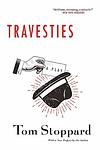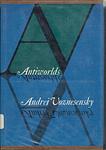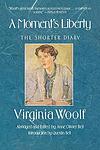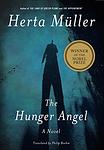The Greatest Russian, German, British "Modernist, Fiction" Books Since 1950
Click to learn how this list is calculated.
This list represents a comprehensive and trusted collection of the greatest books. Developed through a specialized algorithm, it brings together 305 'best of' book lists to form a definitive guide to the world's most acclaimed books. For those interested in how these books are chosen, additional details can be found on the rankings page.
Genres
Modernist literature is a category of books that emerged in the early 20th century, characterized by a break from traditional literary forms and a focus on individual experience and perception. Modernist writers experimented with language, form, and structure, often using stream-of-consciousness narration and fragmented storytelling to convey the complexity and ambiguity of modern life. Themes of alienation, disillusionment, and the search for meaning are common in modernist literature, which reflects the cultural and social upheavals of the time. Overall, modernist literature is a challenging and thought-provoking genre that continues to influence contemporary literature and culture.
Countries
Date Range
Reading Statistics
Click the button below to see how many of these books you've read!
Download
If you're interested in downloading this list as a CSV file for use in a spreadsheet application, you can easily do so by clicking the button below. Please note that to ensure a manageable file size and faster download, the CSV will include details for only the first 500 books.
Download-
1. The Tin Drum by Günter Grass
The novel tells the story of Oskar Matzerath, a boy who decides on his third birthday that he will stop growing and remain a three-year-old forever. Oskar is gifted with a tin drum by his mother, which he uses to express his emotions and thoughts. Living in Danzig during the rise of Nazi Germany, Oskar's refusal to grow is a form of protest against the adult world. The book is a blend of magical realism and historical fiction, providing a unique perspective on the horrors of World War II and the post-war era in Germany.
The 93rd Greatest Book of All Time -
2. The Alexandria Quartet by Lawrence Durrell
"The Alexandria Quartet" is a tetralogy of novels that explore the intricate relationships between a group of friends and lovers in Alexandria, Egypt, before and during World War II. The novels are known for their rich and evocative descriptions of the city and its diverse inhabitants, as well as their innovative narrative structure, which presents the same events from different characters' perspectives in each book. The work explores themes of love, betrayal, and the nature of reality and perception.
The 446th Greatest Book of All Time -
3. The Unconsoled by Kazuo Ishiguro
The book follows a renowned pianist who arrives in a Central European city to give a concert. However, his time there becomes increasingly surreal and disjointed as he is pulled in different directions by the demands of the locals, his own past, and his responsibilities. The narrative explores themes of memory, time, and self-delusion, creating a dream-like atmosphere that blurs the lines between reality and illusion.
The 1340th Greatest Book of All Time -
4. Justine by Lawrence Durrell
"Justine" is a novel set in pre-World War II Alexandria, Egypt, and is the first in a quartet of books. The story is told from the perspective of an Irish teacher living in Alexandria, who becomes entangled in a complex love triangle with a beautiful Jewish woman named Justine and her husband, a wealthy Coptic Christian. The narrative explores themes of love, betrayal, and cultural tension against the backdrop of a city teeming with political intrigue and social unrest.
The 1562nd Greatest Book of All Time -
5. Travesties by Tom Stoppard
The play is a comedic and intellectual romp through Zurich during World War I, where the lives of historical figures like the Dadaist Tristan Tzara, the novelist James Joyce, and the communist revolutionary Lenin intersect through the unreliable memories of British consular official Henry Carr. The narrative is a playful, non-linear exploration of art, politics, and the nature of memory, blending slapstick humor with sharp wit and literary allusions. The work challenges the audience to consider the role of the artist in society and the impact of political upheaval on cultural expression, all while questioning the reliability of history and the very nature of truth itself.
The 2304th Greatest Book of All Time -
6. Happy Moscow by Andrey Platonov
"Happy Moscow" is a satirical novel set in the Soviet Union during the height of Stalinist rule, following the life of a young woman, Moscow Chestnova, who is named after the capital city. Despite the harsh realities of life under an authoritarian regime, she maintains a positive and optimistic outlook, symbolizing the Soviet Union's propaganda that promoted an image of a happy and prosperous society. The novel, through its characters and their experiences, explores the paradoxes and contradictions of the Soviet society, challenging the official narrative of happiness and prosperity.
The 2757th Greatest Book of All Time -
7. Nothing by Henry Green
The novel explores the intertwined lives of a group of affluent, idle Londoners between the World Wars, focusing on the adulterous affairs and complex relationships within their circle. As the characters navigate love, boredom, and the search for meaning in their privileged existence, the narrative delves into the nuances of communication and the subtleties of social interaction. The story unfolds through a series of conversations and encounters, revealing the characters' inner lives and the emptiness that pervades their world of leisure and luxury.
The 3400th Greatest Book of All Time -
8. A Poem Without A Hero by Anna Akhmatova
The book is a profound reflection on the nature of memory, history, and the enduring impact of war. Through a series of interconnected poems, the work weaves together personal and collective experiences, focusing on the tumultuous events of the Russian Revolution and the subsequent Stalinist era. The poet grapples with the themes of loss, betrayal, and the search for redemption, while also paying homage to the artists and thinkers who suffered under repressive regimes. Rich in allusions and steeped in a complex interplay of voices and time periods, the narrative serves as a poignant meditation on the role of the poet and the power of poetry to bear witness to the tragedies of the past.
The 3727th Greatest Book of All Time -
9. Antiworlds by Andrey Voznesensky
"Antiworlds" is a collection of poetry that provides a glimpse into the Soviet Union during the Cold War era. The poems are characterized by their avant-garde style, exploring themes of love, politics, and the human condition. The book includes the author's reflections on his travels around the world, his experiences with other cultures, and his perspective on the political climate of his time. The poems are both personal and universal, offering a unique perspective on the world during a period of intense political and social change.
The 3791st Greatest Book of All Time -
10. Briefing For A Descent Into Hell by Doris Lessing
In this novel, a man found wandering the streets of London with no memory is admitted to a psychiatric hospital, where doctors attempt to diagnose and treat his condition. As he remains in a comatose state, the narrative delves into his complex inner world, blending reality with fantastical visions. Through his journey, the book explores themes of identity, the human psyche, and the boundaries between sanity and madness. The narrative challenges the conventional understanding of mental illness and the nature of reality, inviting readers to question the structures of society and the mind.
The 3791st Greatest Book of All Time -
11. The Anathemata by David Jones
"The Anathemata" is a dense and complex long poem that delves into the rich tapestry of Western culture, drawing from history, mythology, religion, and personal experience to explore themes of faith, art, and identity. The work is structured as a series of ritualistic and symbolic meditations, blending the author's deep knowledge of Catholic liturgy with references to a wide array of sources, from ancient Celtic lore to the rituals of the Roman Empire. Through its lyrical and often fragmented narrative, the poem seeks to unearth the sacred within the profane and to articulate the interconnectedness of human experience across time and space.
The 7168th Greatest Book of All Time -
12. Pigeons On The Grass by Wolfgang Koeppen
"Pigeons On The Grass" is a thought-provoking novel that explores the complexities of post-war German society. Set in a small town, the narrative intertwines the lives of various characters, each representing different social classes and ideologies. Through vivid descriptions and introspective musings, the author delves into themes of alienation, societal constraints, and the search for meaning in a rapidly changing world. With a keen eye for detail and a lyrical prose style, the book offers a nuanced portrayal of human nature and the struggles faced by individuals in the aftermath of war.
The 8726th Greatest Book of All Time -
13. The Strudlhof Steps by Heimito von Doderer
"The Strudlhof Steps" is a complex and layered novel set in Vienna, spanning from 1908 to 1951. It intricately weaves together the lives of its diverse cast of characters, centered around the eponymous staircase, a significant architectural landmark in the city. The narrative delves into the personal histories, relationships, and existential quests of these characters, capturing the social and political changes occurring through the years. With its rich detail and psychological depth, the novel provides a panoramic view of Viennese life across two World Wars, exploring themes of time, memory, and the human condition.
The 8726th Greatest Book of All Time -
14. A Moment's Liberty by Virginia Woolf
"A Moment's Liberty" is a collection of essays that delve into the personal reflections, literary criticisms, and social observations of its author. The essays explore a range of topics from the intricacies of human relationships and the role of women in society to the nature of writing and the author's own experiences with literature and reading. The collection showcases the author's sharp intellect, lyrical prose, and the ability to weave complex ideas with emotional depth, offering readers a rich tapestry of thought that challenges and enlightens.
The 9592nd Greatest Book of All Time -
15. The Hunger Angel by Herta Müller
"The Hunger Angel" is a poignant novel that explores the harrowing experiences of a young man deported to a Soviet labor camp after World War II. The narrative delves into the psychological and physical toll of life in the camp, where the protagonist grapples with extreme hunger, harsh conditions, and the struggle to maintain a sense of identity and humanity. Through lyrical and evocative prose, the book captures the intense emotions and survival mechanisms of those ensnared in the brutal realities of historical political oppression.
The 10431st Greatest Book of All Time
Reading Statistics
Click the button below to see how many of these books you've read!
Download
If you're interested in downloading this list as a CSV file for use in a spreadsheet application, you can easily do so by clicking the button below. Please note that to ensure a manageable file size and faster download, the CSV will include details for only the first 500 books.
Download













